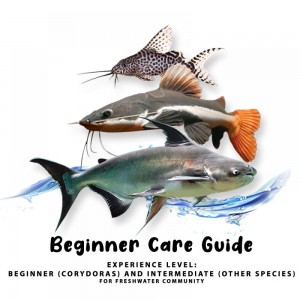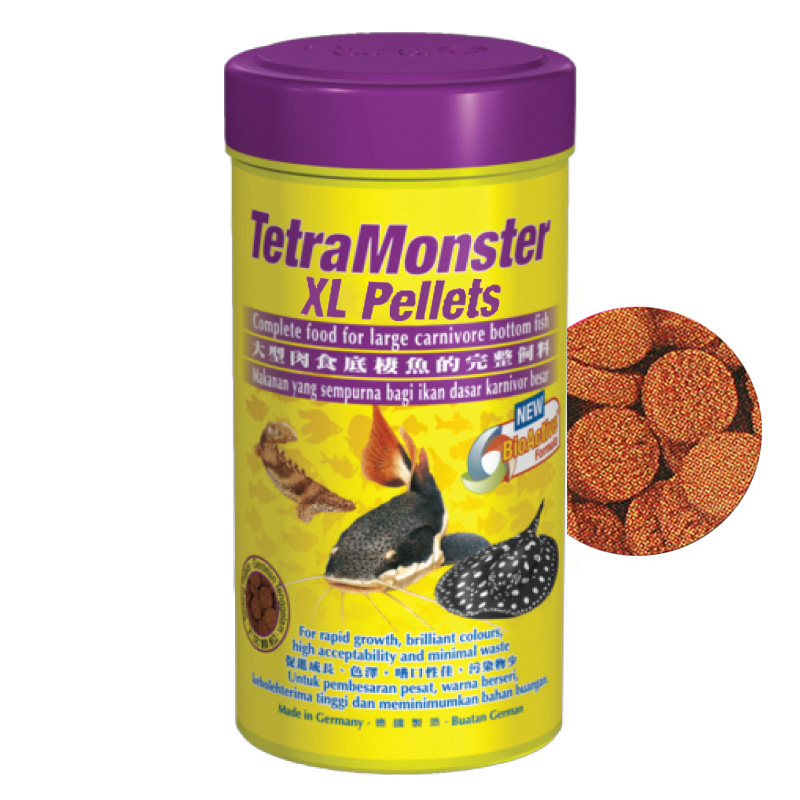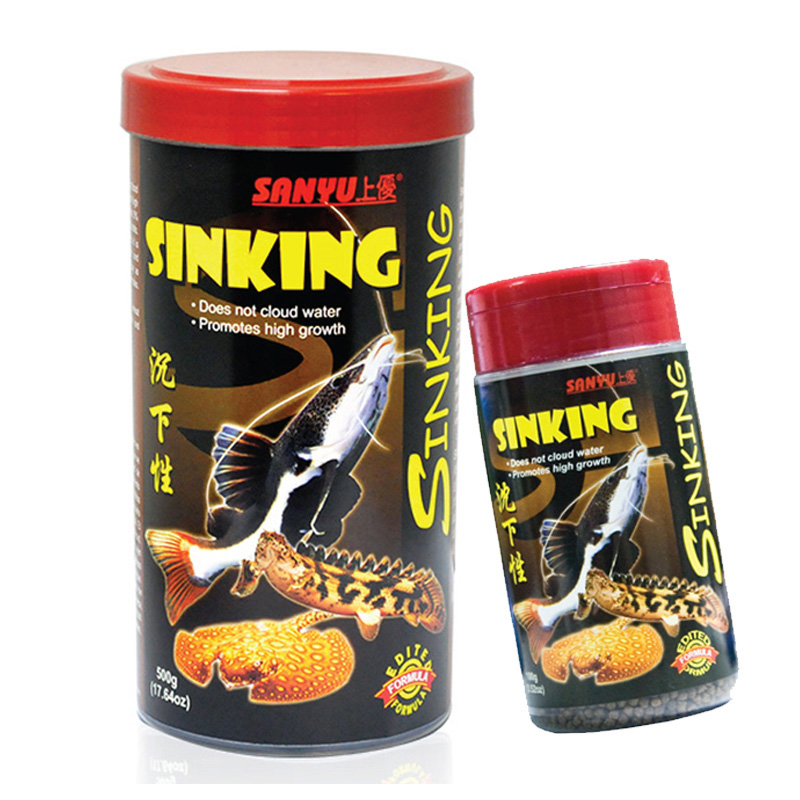Beginner Care Guide of Catfish

Common Name: Catfish
Scientific Name: Varies with breeds
Average size: Corydoras ( 5-7cm), other species (up to 30cm)
PH: 6.0 - 8.0
Lifespan: Up to 5 years with proper care, some species may live even longer
Water Hardness: 2 - 25dH
Temperature: 24°C - 28°C
TRAITS & BEHAVIOR
Diet:
Catfish are omnivore. They eat plants, vegetables and animals matter including small live foods. However, there are certain types of catfish like Plecos are herbivores.
Swimming Behavior:
Most of the catfish are bottom-dwellers. They inhabit the bottom region of an aquarium. Certain species of catfish like Plecos able to hang at the side of aquarium.
Communal:
Corydoras present active if kept in a group of six or more. Larger species should be housed individually.
ENVIRONMENT
Aquarium placement:
Keep away the aquarium from direct sunlight and electronic goods.
Aquarium size:
A minimum of 70 Liters for cory cats, 113 Liters of aquarium tank for larger species will keep them live healthy.
Decoration:
A fine gravel substrate on the bottom of the aquarium with plants like Elodea and Cabomba, driftwoods and rocks to create hiding places will be appreciated.
Lighting:
6-8 hours of lighting is recommended. Avoid extended exposure of lighting to prevent the growth of algae.
Water change:
Advised weekly change of 10% of your aquarium water by using cleaning tools, at least 30% of aquarium water monthly.
General compatibility:
Angelfish, Barbs, Minnows, Discus, Guppies, Gouramis, Loaches, Mollies, Platies, Rainbow fish, Rasboras, Swordtails, Tetra, Catfish and Danios.
NUTRITION
Staple diet:
Offered sinking pellets or food tablets like Tetra Monster XL Pellets, Sanyu Sinking Pellets according to catfish eating habits and size.


Treats:
Bloodworms, artemia and tubifex worms are a good choice to be given occasionally.
Feeding:
Feed small amounts 1-2 times daily. Take off any uneaten fish food after 2-3 minutes with Nirox fish net.
HEALTH
Sign of healthy:
- Clear eyes
- Smooth and clean in appearance
- Healthy appetite
- Calm and steady gill movement
- Bright and even body coloration
Sign of illness:
- Loss of body coloration or appetite
- Lying on the bottom of aquarium
- Poor growth or weight loss
- Fins clamped to sides
- Scraping body on rocks
If you notice any illness sign (s), please to test water quality and improve it if necessary.
IMPORTANCE
- Avoid fish tank from being overcrowded as it may cause stress to fish and a higher chance for them to get sick.
- Regular water change and an appropriate filtration is needed to maintain a good water quality.
- Check water quality by using JBL Test Kit at least once a week.
- Do not simple apply fish medications and salt to them as they may sensitive to it.
- Wash hand with soap after each time handling your aquarium.
